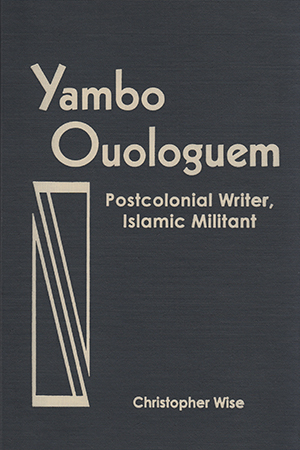From the appearance of
Bound to Violence in the late 1960s, Yambo Ouologuem has been one of Africa's most controversial writers. For some critics, the young Malian signaled an entire new direction for African letters: a fiercely courageous postindependence literature. For others, his novel revealed too much, bringing to light horrors many preferred to ignore. Today Ouologuem is credited with delivering the final death-blow to Senghorian negritude, thus clearing the way for a more honest literature divested of the longing for a false African past.
This book gathers the most important essays on Ouologuem from critics on three continents. Wise also includes his recent interviews with the reclusive author and a companion essay on Ouologuem’s present life among the Tidjaniya Muslims of northern Mali.
Christopher Wise is associate professor of English at Western Washington University, where he teaches global literary studies. His research interests focus on Sahelian literature and postcolonial theory.
"The first three parts of the book constitute an essential source for study of the reception of Ouologuem.... It is, however, the concluding accounts of Wise's own research in the field which make this volume indispensable for future discussion of Ouologuem and open the path for innovative in vivo research into African writing."—George Lang, Research in African Literatures
"A wealth of well-documented information on literary, historical, philosophical, and mundane aspects of Ouologuem's work."—Robert P. Smith Jr., World Literature Today
"Wise provide[s] today's postcolonial and African scholars with enough intellectual considerations to inspire a host of new essays, articles, presentations, and lectures."—Glen Bush, African Studies Review
"Wise renders an important service by bringing together a dozen articles and several recent interviews on the work of this Malian (West African) francophone.... Recommended for all college and university collections supporting studies of African, African American, and postcolonial literature."—Choice






